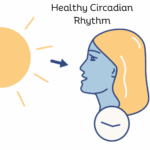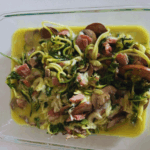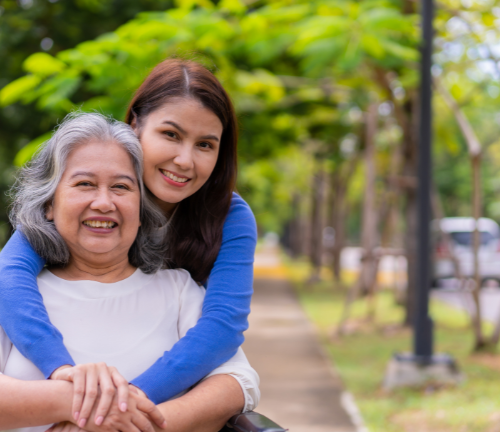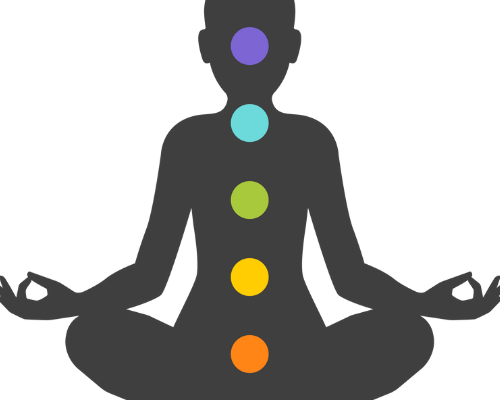This post is a guide to caregiver survival tips when you have a chronic illness yourself. If your loved one needs your help you jump in without questioning it! But taking time to evaluate what your loved one needs, who else is available to help, and what they can afford, can ensure that you are not doing everything yourself. If you are the only caregiver available you need to be extra careful to watch your stress levels when you yourself are chronically ill.
Table of Contents
Caregiver survival tips start with acknowledging the prevalence of caregiving
Caregiving is widespread and hidden. There are an estimated 43 million informal caregivers in the United States today. As the population ages, you may find yourself thrust into the role of caregiver without giving it conscious consideration. But if you are chronically ill, the cost to your health can be considerable!
This post is a guide to caregiver survival when you have a chronic illness yourself. If your loved one needs your help you jump in without questioning it! But you need to be extra careful with your stress levels when you yourself are chronically ill.
Caregiver survival tips to orient you
Caregiving is disorienting. Roles change when you become a caregiver, and relationships, expectations, and responsibilities can be overturned overnight. Inevitably caregivers experience disorientation because most of us don’t plan to take on caregiving roles. You might not be equipped with the skills to discuss these changes and advocate while you are in the throes of this disorientation. Seeking out the support of a therapist or counselor can help keep things in perspective.
Caregiver survival tips to re-center you
Caregiving is stressful. The stress of caring for another person goes beyond normal work-life stress because you are often on-call 24-7. If your loved one’s health concern is new or fluctuates, you may feel off-balance, not knowing when you can leave them, or how to attend to your own needs. It can be overwhelming to suddenly have to take into account everything about a loved one’s life: their diet, medications, appointments, and well-being. All of this contributes to putting your own needs on the back burner. The long-term stress of caregiving can cause unaddressed issues in your own health to flare up, making you unable to care for either your loved one or yourself.
Intention
The Sacred Self-Healing Method relies on the power of intention. Intentions are more than goals, but your co-creative participation in your life path and healing. By setting an intention you add your desire to be a partner in your destiny, in combination with the seen and unseen forces at work in the Universe. Whether you are setting an intention for a successful root canal, for finding a great new job, or for a business meeting to go well, the act of putting forethought about the outcome into the process can be a powerful tool.
Intention is the driving force behind any energy healing modality, from Reiki to sound healing to prayer.
The universal equation for healing is:
Intention + Frequency = Healing
The “frequency” part of the equation is whatever healing modality is being used.
Intention can be used in health healing, job search, fitness, relationships, and pretty much everything.
This post has more information on the power of intention.
Join me!
If the ideas in this post resonate with you then you might be interested in learning about my offerings. I offer Sacred Self-Healing, chronic illness and caregiver support coaching, meditations, and frequency healing classes, and I would love to connect with you!
Take a class!
Betsy offers experiential Classes so you can learn the Sacred Self-Healing Method yourself. Click the link for more information.
Try the Sacred Self-Healing Method!
If you are interested in applying the power of intention to healing an emotional, mental, physical, or spiritual aspect of your life then check out these powerful tools:
Sign up for a group or individual session!
I provide one-on-one in-person and remote Sacred Self-Healing Sessions based on the Sacred Self-Healing Method, a proven novel co-creative healing modality detailed in her Books. Click here for more information.
Check out this powerful frequency device
Healy is an individualized specific microcurrent device (ISM) that runs beneficial electrical currents directed by an app on your phone. Healy can be used to magnify your intention and to get the most out of your life. Check out this post for more about Healy. And this post offers tips and tricks for using Healy.
Buy my books!
My books are available here.
Listen to my recordings!
Check them out for free here on my YouTube channel.
Sign up for my mailing list
Fatigue and the trauma of caregiving
As well, the fatigue and exhaustion that caregivers experience are off the charts, because all of our systems are taxed at once. (See my post on trauma and Vagus Nerve Health)
Trauma therapist Eileen Devine, LCSW writes about how many caregivers experience multiple layers of exhaustion. She lists four layers:
Caregiver Burnout – when you become demoralized, disillusioned, cynical, and exhausted on all levels. (see my Guide to Self-Care)
Relational Stress – when it feels like your relationship with your environment (or other people in your environment) exceeds your resources and endangers your well-being.
Trauma – when your caregiving experience includes trauma on a daily or regular basis from stressful caregiving interactions, medical procedures, medical trauma, or being the target of aggression. (see my Guide to Clearing Trauma for Vagus Nerve Health)
Compassion Fatigue – when you gradually lose compassion over time, resulting from an ongoing relationship with a needy individual.
Each of these conditions separately merits professional help. Together, they are utterly overwhelming. In order to survive as a caregiver, Devine recommends the following tactics:
Caregiver survival tips
Recognize the struggle of caregiving
Recognize your experience for all that it is. Honor your feelings and get professional support when needed. The fatigue, trauma, and stress all need to be named and processed in a healthy way to be able to continue to function.
Choose support wisely
Choose support wisely and avoid toxic people and relationships who don’t feed you. Don’t hang out with people who take from your already tapped-out energy stores in your downtime. Seek supportive relationships with people who get what you are going through. It can be more challenging to find them, but associating with other caregivers through support groups or online chats can give you the validation you need.
Prioritize yourself
Prioritize yourself and delegate anything and everything that you can. This is for your survival. Figure out how those around you can help, and ask for it. You can’t do everything, and your survival depends on taking care of yourself. Easier said than done. But focus on self-care ideas that give you the most bang for your buck. Take naps, even micro-naps!
Don’t make assumptions
Don’t assume that those around you, even your partner or closest friends, understand the full impact of your trauma. Find ways to let them know how you are doing and ask them for help. Making assumptions can create even greater feelings of isolation.
Fill your bucket of joy
If something brings you joy or is restorative, it should be considered an absolute necessity. Plan ahead for whatever you can, like a massage, a walk with a friend, or ordering food. Then have a bag packed for the instant you have a brief unplanned break, with whatever you need to recharge so that you can take advantage of it. Think about what really feeds you and have it ready to go, like a book, a chocolate bar, or funny videos ready to watch on your phone.
Listen to your body
Caregiving is exhausting work. Most caregivers suffer physical ailments as a result of constantly being “on call.” If you have aches or pains, see a chiropractor, get a massage, try to get adequate sleep, get some form of exercise, eat nourishing foods, and drink plenty of water. Being a martyr won’t help you or anyone else. If you have a serious health problem, please attend to it.
What helps you survive as a caregiver?
I’d love to hear your comments below!
Disclaimer
The preceding material does not constitute medical advice. This information is for information purposes only and is not intended to be a substitute for professional medical advice, diagnosis, cure or treatment. Always seek advice from your medical doctor.






